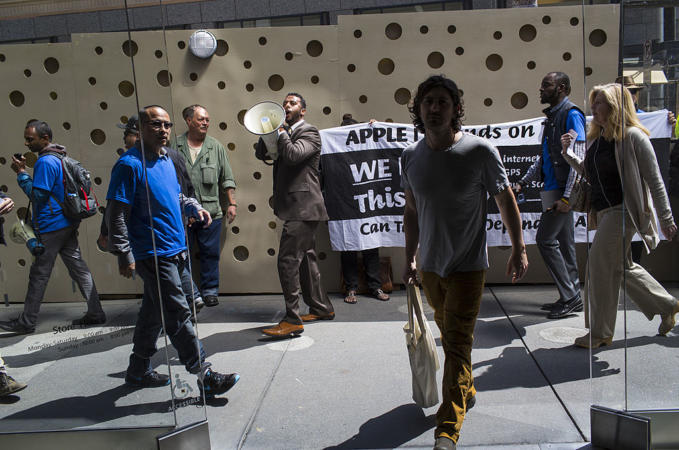The United States is no stranger to labor movements. Throughout the country’s history, members of the working-class have organized in protest of wage cuts, dangerous working conditions, long hours, and more. Although remembrance of labor movements often focuses on white workers, Black activists were integral to shaping the labor movement.
As a holiday, Labor Day has a complicated history, but it can serve as an important time to reflect on how labor issues show up in the present. While the tech industry is often thought of as a place where you go to get rich, that’s not the case for every worker. Tech workers are not just those who inhabit white-collar positions, but also Google’s contract workers, your Uber drivers, and DoorDash workers, who have been recently subject to a predatory tipping scheme.
Essentially, the company used tips as a way to subsidize drivers’ base pay. As a result, there was a class-action lawsuit filed in May.
“For example, if DoorDash promised the Dasher $5 base pay for the delivery, and the customer tips the Dasher in an amount of $2, the Dasher still only gets $5,” two DoorDash workers explained.
Initially, DoorDash’s CEO Tony Xu tried to double down on its questionable payment model. Then, on August 22, DoorDash shared details about a new tipping policy that the company plans to roll out starting next month. Under the new payment model, drivers will receive 100 percent of any tip that a customer gives through the app. In addition, DoorDash said it would increase base pay earnings for all drivers at a range of $2-$10+ per delivery.
What the situation with DoorDash reveals is that tech isn’t immune from organizing, labor movements included. It’s unlikely that DoorDash would have changed its tipping model on its own. Pressure from places like the Pay Up Campaign — a project of Working Washington — and the general public forced DoorDash to treat its workers a little better.
DoorDash isn’t the only tech company that underpays workers or otherwise treats them poorly. Google continues to treat its temporary and contract workers differently than full-time employees. The company only made it a requirement to give temp workers health care benefits, parental leave, and a minimum wage of $15 in April.
In a tweet, former Google employee and tech labor organizer Meredith Whittaker wrote:
“Over half of Google’s workers are temps. This wasn’t always true. We’re building a future where only bosses & elite engineers are ‘real’ employees, while everyone else is treated as disposable. To create a livable ‘future of work,’ this has to change.”
Over half of Google's workers are temps. This wasn't always true. We're building a future where only bosses & elite engineers are "real" employees, while everyone else is treated as disposable. To create a livable "future of work," this has to change. https://t.co/zMgRc2jf0l
— Meredith Whittaker (@mer__edith) May 28, 2019
The change Whittaker speaks of needs to come not only at Google but across the board. Companies like Facebook cannot continue relying on underpaid human moderators to shift through violent content, often leading to serious mental health issues. Amazon cannot continue to run Mechanical Turk, a crowdsourcing website to find labor where people can be paid less than a dollar to complete a task. In a report by Alana Semuels, The Atlantic described Mechanical Turk as an “online hell.”
There is no reason for an industry — where some of its biggest players are valued at $3 trillion — to consistently underpay workers or provide poor working conditions. Technology’s focus on profit over everything not only harms those within it, but it will also continue to harm our society. The pursuit of profit above all else is why companies create technology like facial recognition or manufacture paranoia in ways that disproportionately impact Black communities. In the words of Ian Malcolm, “Your scientists were so preoccupied with whether they could, they didn’t stop to think if they should.”
Tech workers are no stranger to organizing, and that will continue into the future. As consumers, we need to remain aware of their demands and do what we can to offer support. Whether it’s boycotting Amazon for its mistreatment of Black Muslim workers or tipping drivers in cash, there’s a lot of small steps individuals can take.

